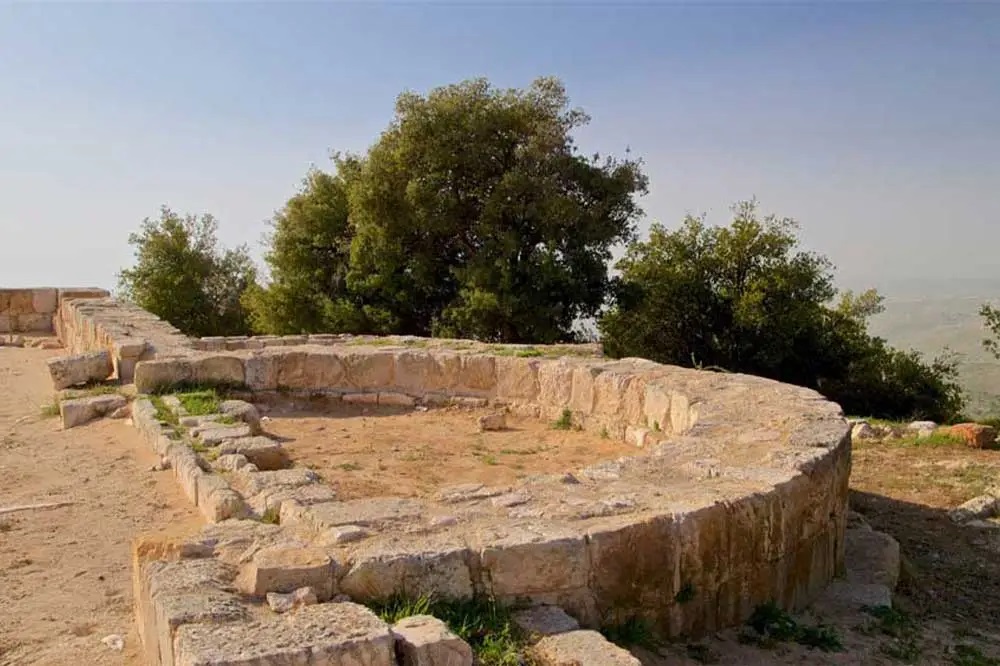The Shrine of the Prophet Elijah (Mar Elias) is considered one of the most important historical, archaeological and religious sites in Jordan and has a special holiness among Christians.
Mar Elias Hill is located in the northwest of Ajloun, between the towns of Ishtfina and Al-Wahadna. It rises above mountains 900 meters above sea level, and on it are traces of a church from the Byzantine era. Text in Greek writing was found on a mosaic floor, and the Prophet Elijah was explicitly mentioned by name in it, and the visitor can see it clearly.
Despite the holiness of the place and its historical age, its fame became famous after March 2000, when His Holiness Pope John Paul II came and visited the site, where he performed pilgrimage and prayed. It was officially designated as a pilgrimage site, and July 20 of each year was designated as a Christian pilgrimage day to the Saint Elias shrine, which commemorates the Prophet Elijah, and on this occasion a ceremonial mass is held at the site.
The shrine is an overlook and a high hill reaching
The visitor can easily access it due to the availability of means of transportation. He can see from the highlands and the neighboring villages in northern Palestine. The visitor listens to a tourist guide present there explaining the significance of the place and the story of the Prophet Elijah in the Holy Bible and how the Lord raised the Prophet Elijah toward heaven in the storm, as mentioned in the Second Book of Kings.
The holiness of the place is demonstrated by religious evidence, as there are the remains of the monastery dating back to the late Roman and early Byzantine eras, as well as the upper church. Its area is 1,430 square meters and is in the shape of a rectangle. The structure is made of white marble. It has an open courtyard and a baptismal room consisting of a rectangular font with a A hexagonal opening was used for baptism, and many baptismal wells. The visitor also sees marble panels with Greek inscriptions and mosaic floors.
As for the small church, it has one nave, two entrances, and a floor covered with a layer of colorful mosaics surrounded by crosses and geometric shapes.
The details of the shrine are many in terms of historical evidence and the ruins of churches. The visitor concludes the tour by sitting and resting under the wish tree. There are also oak trees on the site, and it is customary for each person to pray and write wishes and hang them on the tree branches in the hope that they will come true.

